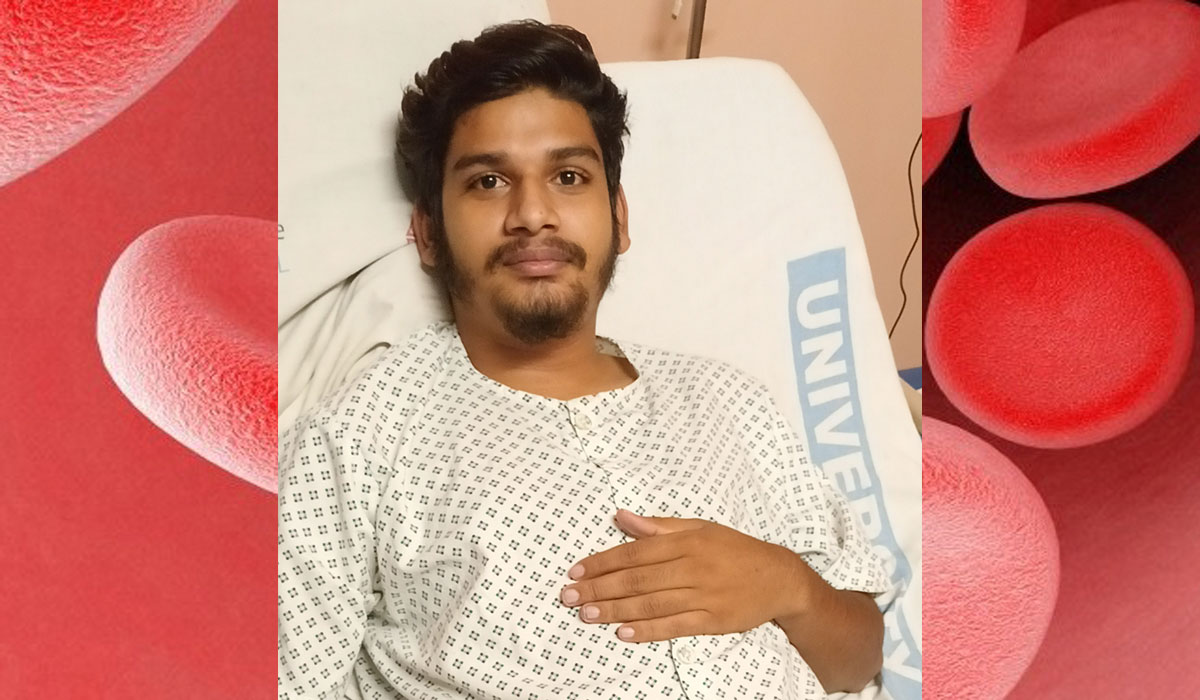Through the WFH Humanitarian Aid Program, the World Federation of Hemophilia (WFH) is working to change this. The need for training is critical, because a fast, accurate diagnosis can be the difference between life and death for person with a bleeding disorder (PWBD) with a serious injury.
In Pakistan, physicians trained by the WFH Humanitarian Aid Program recognized that a patient admitted to the emergency ward had a bleeding disorder and were able to coordinate with another medical facility to save the boy’s life. Inderiyas Masih didn’t know he was a PWBD—despite suffering through bleeds for all his 17 years. He had been able to manage his previous bleeds, but when he went to seek treatment from the University of Lahore Teaching Hospital, he had an unbearable pain in his groin, and he was unable to stand on one leg.
Physicians at the hospital ran several tests and determined that Masih had a hematoma in his psoas muscle. All too often, a PWBD’s diagnosis ends there: they are treated for the immediate issue but nothing more. In the case of Masih, physicians who had been trained by the WFH Humanitarian Aid Program suspected that he might have a bleeding disorder. They ran tests, determined that he had hemophilia A, and referred him to a local hemophilia treatment centre (HTC), where he was given donated non-replacement factor therapy. The HTC then worked with surgeons to explain how to perform an operation using Clotting Factor Concentrates (CFCs). Masih made a full recovery and was soon discharged from the hospital. This case shows that training can save lives, but it also shows that more can be done to prevent people like Masih from suffering for years—sometimes decades—because of a lack of diagnosis.
Nearly 9.5 million IUs of factor, and over 100,000 ml of non-replacement factor therapy were donated to Pakistan through the WFH Humanitarian Aid Program in 2021. Since 2015, almost 50 million IUs of factor were donated to Pakistan. To find out more about the WFH Humanitarian Program, please click here.
About the WFH Humanitarian Aid Program
The WFH Humanitarian Aid Program improves the lack of access to care and treatment by providing much-needed support for people with inherited bleeding disorders in developing countries. By providing patients with a more predictable and sustainable flow of humanitarian aid donations, the WFH Humanitarian Aid Program makes it possible for patients to receive consistent and reliable access to treatment and care. None of this would be possible without the generous support of Sanofi Genzyme and Sobi, our Founding Visionary Contributors; Bayer and Roche, our Visionary Contributors; Grifols, our Leadership Contributor; and our Contributors, CSL Behring and Takeda. To learn more about the WFH Humanitarian Aid Program, visit www.treatmentforall.org.













